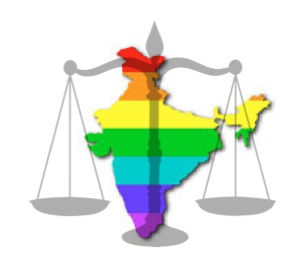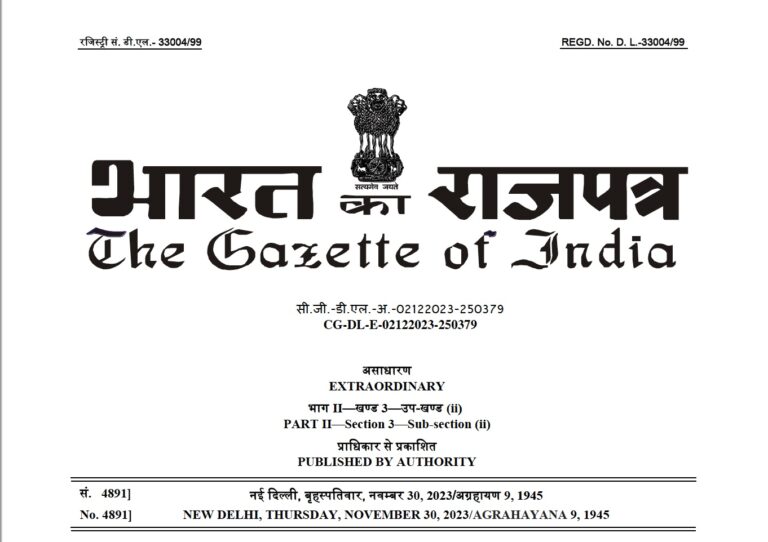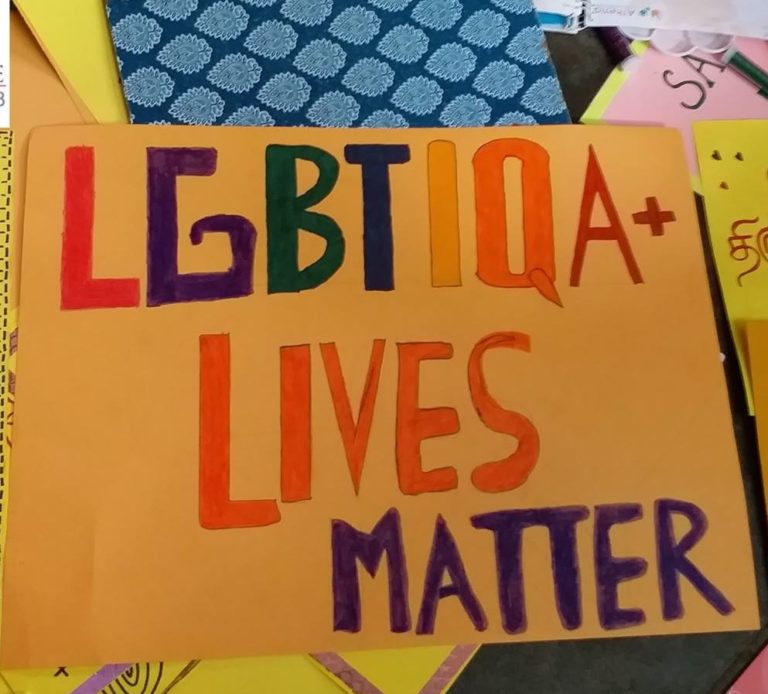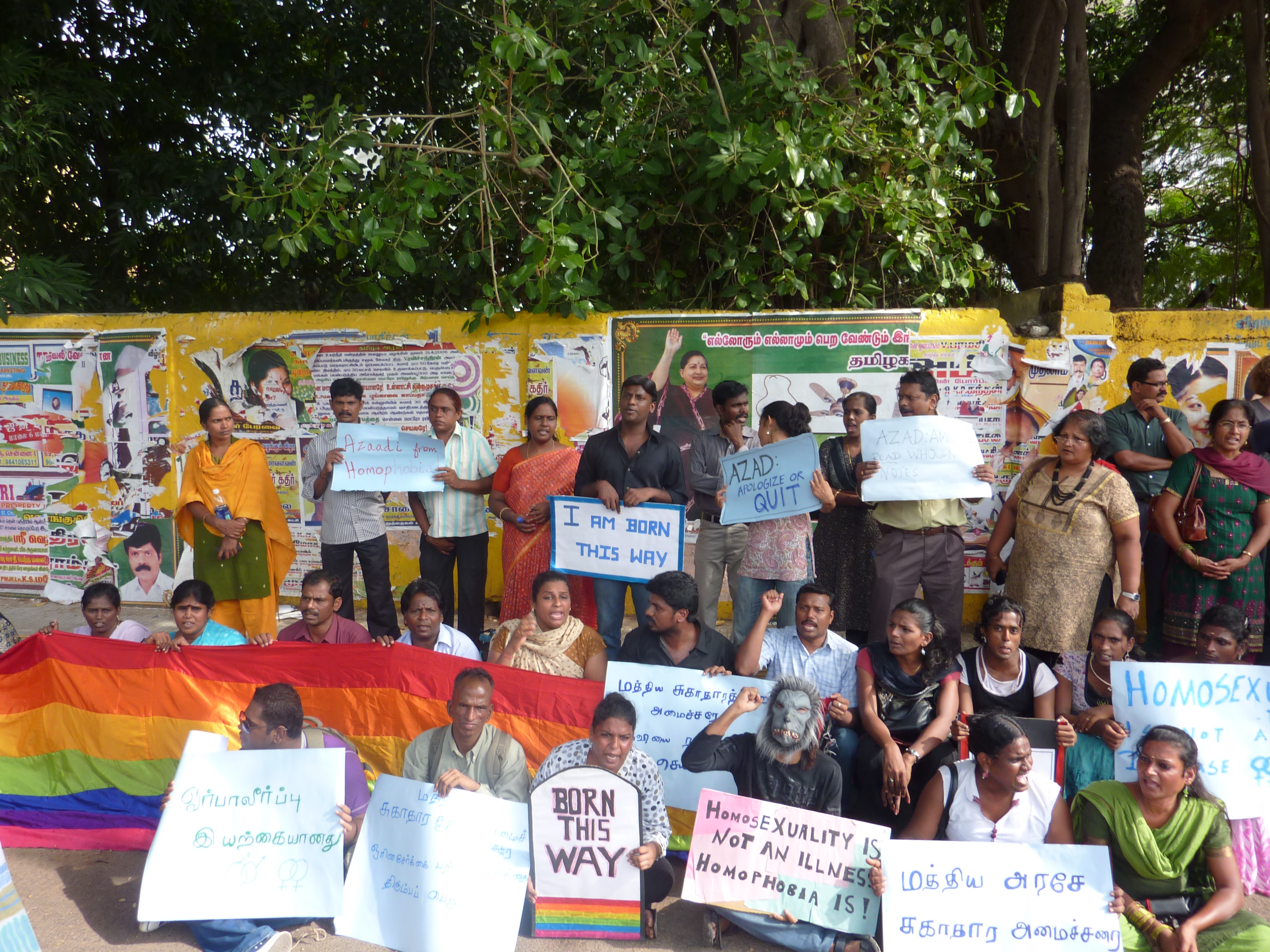Not legal doesn’t mean illegal: The situation for queer individuals in India

Suggested citation format:
Rajani, Ritesh and Sourav Mandal. 2017. Not legal doesn’t mean illegal: The situation for queer individuals in India. Orinam.net. Retrieved on mm/dd/yyyy from https://orinam.net/not-legal-doesnt-mean-illegal-queer-situation-india
DISCLAIMER 1: This article presents general musings on the law. This is not meant to be a legal white paper or reference guide, but more as a resource for awareness of the options available to the community. For specific legal guidance, please consult a lawyer.
DISCLAIMER 2: Legality, morality and social acceptance are different aspects. Just because something is not illegal, it does not mean that the society around you will accept or tolerate certain acts or situations. Please exercise caution and use your own discretion and judgement to gauge your safety within the socio-cultural environment of your locality/community.
 There have been a few recent incidents that have highlighted the confusion among the general public, and among members of the queer community about the legality and illegality of certain situations. In April 2017 there were reports of a police sub-inspector in Punjab getting married to her partner. In July 2017 there was an incorrect report of a marriage between two women in Bangalore. Are such marriages illegal? Can you be arrested for using gay dating apps? What rights does one have if they are being harassed by cops, family members or exploiters because of their gender identity or sexual orientation? Does the queer community even have any protections in the law?
There have been a few recent incidents that have highlighted the confusion among the general public, and among members of the queer community about the legality and illegality of certain situations. In April 2017 there were reports of a police sub-inspector in Punjab getting married to her partner. In July 2017 there was an incorrect report of a marriage between two women in Bangalore. Are such marriages illegal? Can you be arrested for using gay dating apps? What rights does one have if they are being harassed by cops, family members or exploiters because of their gender identity or sexual orientation? Does the queer community even have any protections in the law?
The laws pertaining to queer India, like Section 377, are filled with ambiguities. While the laws themselves may not be used to convict or persecute, the mere presence of them causes fear and anxiety in the queer community, which fuels power to real criminals like extortioners, harassers, rapists, abusers etc. The law has been used to oppress the community, sometimes even by the police themselves or by the own families of queer individuals. In this murky climate, the knowledge of the law is a more powerful safeguard than the very laws which are meant to protect us (in some cases indict us).
Before we get into specifics of our situations, let us understand a principle; “Not being legal does not equate to being illegal”. When something is illegal, it means that there is a provision in the law that specifically prohibits it and makes it a crime. For something to be legally validated, there should be a provision in the law which allows it or regulates it (for example selling a property is regulated by Transfer of Property Act). Now, there is an in-between scenario where there something is not illegal, while – at the same time – there is no law that governs it or regulates it, and it is not a crime. One example is the use (buying/selling/trading) of the bitcoin currency. It would not be illegal unless there is a law that specifically prohibits it, at the same time there is no legal law/authority to regulate the trading of it – which makes it legal but unregulated.
Let’s look at the legal situation for queer Indians in four brackets – Allowable Activities (not illegal – ideally cannot be convicted for), Activities not allowed (because of not having legal provisions), Illegal/Criminal activities (activities you can be convicted for under the current laws), and Legal protections available to individuals.
I. Allowable Activities in the current legal context
Ideally, you cannot be arrested/convicted for any of the following:
I.A. Gender Identity, Gender Expression and Sexual Orientation
– Being open about your gender identity and/or sexual orientation: There is no law today that criminalizes one’s identity of being Gay, Lesbian, Bisexual, Transgender, Queer, Intersex etc. Revealing that someone is a gay man only means that he is (mostly/exclusively) interested in other men: it does not necessarily equate to an admission of the sexual act with a man (which will anyway require evidence to incriminate – Read Section III for more). There are hundreds in India who have come out loudly and openly in print, visual, social media. Bottom-line, one cannot be arrested for coming out and being open about their identity.
– Expressing oneself in any gender or attire (gender-affirmative dressing, cross-dressing etc): “All persons, not just adults, have the right to dress in the attire they choose. This is a fundamental right as per Art. 19(1)(a) and affirmed by the Supreme Court Judgement in NALSA Vs. Union of India, (2014) 5 SCC 438.” (Shukla, pers. comm.)
Para 62 hereunder states: “Article 19(1) (a) of the Constitution states that all citizens shall have the right to freedom of speech and expression, which includes one’s right to expression of his self-identified gender. Self-identified gender can be expressed through dress, words, action or behavior or any other form. No restriction can be placed on one’s personal appearance or choice of dressing, subject to the restrictions contained in Article 19(2) of the Constitution.”
Caution: Though this is not illegal, expressing oneself by dressing or other mannerisms in a way that may not be perceived as acceptable by mainstream society, may provoke violence, especially against visibly gender non-conforming or non-binary individuals.
– Undergoing gender affirmation surgery or procedures at hospitals/clinics: Gathering Information or accessing gender affirming surgeries (formerly sex reassignment surgeries) and related procedures such as endocrine therapy is a matter of right under the Supreme Court Judgement in NALSA Vs. Union of India, (2014) 5 SCC 438.
– Legally affirming gender in official identity and documentation: Applying for Gender/Name Change (better put as affirmation) in Government Documents (e.g., Passport, Election Card, Educational Certificates is a matter of fundamental right under the Supreme Court Judgement in NALSA Vs. Union of India, (2014) 5 SCC 438.
I.B. Right to Personal Freedom
– Watching/reading gay porn in private, storing gay porn on your laptop is not illegal (except child porn), publishing porn is illegal. Watching/reading anything pornographic in private, possessing pornographic literature are not offenses under the law, as long as it doesn’t involve pedophilic porn (child porn). However, acts of publishing and transmitting any sexually explicit act or conduct shall be punished on first conviction with imprisonment of either description for a term which may extend to five years and with fine which may extend to ten lakh rupees and in the event of a second or subsequent conviction with imprisonment of either description for a term which may extend to seven years and also with fine which may extend to ten lakh rupees. [Section 67A, Information Tech, Act, 2000]. Section 67B criminalizes browsing, downloading, creation, and publishing child pornography. Child anime porn is also explicitly criminalized.
– Using dating apps: There is simply no law to regulate dating/hookup apps allowing their users to find matches for same-sex sexual intercourse/socialization. Hence, their usage is not illegal per se. However, with malicious intent, these acts might inadvertently make gullible users susceptible under section 377, IPC (See Section III).
– Meeting people and going for casual dates: Meeting people/going on a casual date/blind date is completely legal as there is no law that bars such an act. Also, meeting people is an act guaranteed as Right to Freedom of Assembly under Article 19(1)(b), which is a fundamental right under the constitution.
– Holding hands or hugging in public is not illegal though it might provoke violence or harassment from cops or others. Holding hands and hugging could be considered a guaranteed fundamental right as Right to Freedom of Expression under Article 19(1)(a) of the Constitution. However, kissing in public could be considered an offense under Section 294, IPC as an obscene act. However, it is often found that prosecution of such offenses fail as it is very difficult to establish “annoyance to public” which is the most important ingredient for this offense to have been committed. [references could be made to the judgment of the Delhi HC in A and B vs. State of NCT of Delhi, (25.05.2009 – DELHC) MANU/DE/0768/2009].
I.C. Partners, Relationships and Romantic Freedom
– Living together with your partner(s) of any gender as long as they are adults: Adults (persons more than 18 years of age) living consensually together in private premises is not an offense. See Arasu and Thangarajah (2012) for a discussion of how kidnapping charges are often levied by parents against the same-gender partners of their queer daughters: in cases like these, demonstrating that the individuals are adults and living together consensually is critical.
– Renting an apartment together and having a rental agreementFor rent agreements, there is no prescribed legal format which mandates the tenant(s) to disclose their relationship.
– Conducting a same-gender marriage ceremony/reception –Exchanging rings or solemnizing marriage through vows/rituals, with or without the presence of a priest, between persons of the same-sex is not a criminal offence. It is just that the law may not recognize such marriages as legal marriages, but that doesn’t make them illegal either.
In fact, Ruth Vanita has also argued a point that same-gender marriages could be legal (Vanita, 2005, in Shukla pers. comm.) “The Hindu Marriage Act allows for a marriage to be solemnized as per customary rites (S.7)”, says Shukla. This means that if as per the customs of one of the parties, same sex couples were wedded, it could be argued that such marriages are legal. In reality, there is no judgment wherein, any court has ever validated any such custom on such a matter or otherwise. See Narrain and Ohdedar (2011) for a legal perspective on same-sex marriage in India.
Whatever be the deal, conducting a ceremony is not illegal – just as throwing a birthday party or house-warming party isn’t.
– Sharing pictures of you and your partner/your marriage ceremony:Sharing pictures of you and your loved ones (friends or partners) online/offline is not an offense. Do be cautious that sharing pictures publicly might prompt haters to gather evidence to indict you under Section 377 (Refer Section III).
– Buying a property as co-owners – subject to rules of apartment / society: Buying a property as co-owners is legally possible. Accessing joint home loans is also possible, but in most cases the Banks discourage such practices. However, there are no explicit law that disables any person(s) to apply or avail home loan jointly. There are ways to get around this law.
– inheritance as part of a will (preferably a registered will): “There is no bar on willing away one’s self acquired property to anyone. The person need not be related to the maker of the will. After all, people do will their property to charities/causes etc.” (Shukla, pers. comm). However, do note that if, the legal-heirs of the deceased (testator) may always go to court claiming the invalidity of such a will – and then the issue gets complicated.
I.D. Freedom to participate in and organize queer events
– Participating in pride parades, queer film festivals or gay/queer parties: Participating in Pride Parades, Queer film Festivals, cultural events or parties is a matter of a fundamental right guaranteed by the constitution as a Right to Freedom of Expression and peaceful assembly under Article 19(1). The onus is on organizers to take the requisite permissions for conducting the event,
– Organizing a queer pride parade – Organizing a pride parade is legal (similar to holding a rally/march). Permissions need to be sought from local municipal body, civil and traffic police, on the specified route approved by them. This has religiously been followed by pride organizers across India. The police though has very vague/broad powers to not allow or stop an ongoing programme under Section 144 of Criminal Procedure Code, 1973 and under the respective State Police Acts.
– Organizing a queer film festival – It is just as legal as organizing any other national or international film festival. There are specific rules that apply for public screenings and private screenings of films. Please reach out to organizers of popular queer film festivals for more details.
– Organizing gay/queer parties – Queer parties are as legal as any other parties. Like organizing a party at any other party venue, permissions should be taken, and the local municipal laws must be abided by. Local municipal laws may restrict localities, timings, alcohol service, noise decibel levels, number of persons etc. Needless to say, it is illegal to possess or distribute illegal drugs during any such parties.
I.E. Other acts
– Money in exchange of sexual services: The law is vague on sex work itself, and tends to conflate sex work with trafficking. In India, sex work (the exchange of sexual services for money) is legal, but a number of related activities, including running a brothel, living on earnings of sex work, procuring, inducing an individual or detaining them for prostitution, with or without consent, sex work in areas notified by police and near public places and soliciting are crimes, as per the Immoral Traffic Prevention Act [1986 amendment of the original 1956 Act]. The 1986 Amendment also made the Act gender-neutral, replacing “girls” and “women” by “persons”, thereby bringing cis-men and trans persons within the ambit of the Act.
It is not clear if online solicitation though dating apps or websites is illegal or not.The clients can be punished for sexual activity at or close to a public place (or notified area).
II. What is not possible in the current legal context
– Same-gender partners legally being recognized as married spouses: Same-gender partners are not recognized as legal spouses in the absence of a law allowing same-gender marriage or union. The rights available to married different gender (“heterosexual”) couples are not available. Since there is no marriage or legal civil union, there is no question of divorce.
– Being recognized as spouses for life insurance (possible but tricky): There appears to be no restriction on nominating anyone one desires as a nominee under an insurance policy as per the Insurance Amendment Act (Shukla pers. comm). However, nominating unrelated parties (since the partner is legally unrelated), that is, those who do not have an insurable interest in the life of the insured increases the risk for the insurer. Therefore, insurance companies usually avoid registration of unrelated parties as nominees, and it is almost impossible to negotiate such a deal with them.
– Being recognized as spouses/family for medical insurance: Same-gender partners are typically not covered under a family medical plan. However, some progressive companies in India have managed to provide this under their corporate group insurance policy. See this video from the Diversity Dialogues series for some options.
– Being able to sign as next-of-kin in a medical emergency: Same-gender partners cannot take legal decisions with respect to the medical condition of their partners, or sign the dependent forms in hospitals.
– Being considered as a legal-heir (in the absence of a will): if a person dies before making a will, then as per the laws on succession, the property of the deceased by default is succeeded by the legal-heirs of such deceased, i.e., persons who are related by birth or marriage (heteronormative-kinship ties). Same-gender partners are not considered as legal surviving heirs.
– Opening a joint account as spouses: Since there is no legally recognized relationship between same-gender partners banks will not create joint accounts. However, there are other juggaads to do this (If you can’t create a family entity you can always create a business entity!)
– Acquiring a joint home loan: In most cases the Banks discourage such practices. However, there are no explicit law that prevents any person(s) from applying or availing of home loans jointly. There may be (difficult) ways to get this done.
– Adopting children as a same-gender couple. Joint custody of a child is not possible. Though adoption is possible as a single individual, there are many rules.
– Surrogacy as a couple or as a single individual – It is still not clear whether it is legal/illegal, as there is no law in effect to address this at the moment. So, technically, it is still possible, but it appears very difficult under the current governmental regime as surrogacy – both as a single individual or a same-gender couple – may not possible as per amendments proposed in the law in 2016, where homosexuals were specifically called out and excluded from access to surrogacy. However, the Surrogacy (Regulation) Bill, 2016, is yet to be passed by the Parliament.
III. What IS illegal / crime (you can be arrested for)
Section 377 of the Indian Penal Code criminalizes sex “against the order of nature”, even if it is consensual and private. This covers anal sex, oral sex, etc. The Criminal Law (Amendment) Act of 2013 included non-consensual oral and anal sex of the “heterosexual” variety in its definition of rape (Ramakrishnan, pers. comm.) Thus, same-gender acts alone, whether consensual or not, continue to be considered a crime under 377/
There needs to be evidence of such an act happening between two individuals for getting convicted under Section 377. Now, if someone with an intention of malice tried to indict someone under section 377, they would have to collect evidence of the sexual act. Unless the victim is caught having sex in public, the perpetrator would have to themselves violate one or more laws to gather such evidence – such as trespassing into the victim’s private space etc.
While convictions haven’t happened (unless in the case of non-consensual acts and child sexual abuse) – intimidation, blackmail, harassment, unlawful detention and arrests by the police do happen. Queer support organizations can help individuals in such situations. Refer to the next section on legal protections available.
IV. Legal protections available to queer individuals
– Protections under the NALSA judgement:
A two-judge bench of the Supreme Court of India, after hearing the petition filed by the National Legal Services Authority, passed a historic judgement on Transgender Rights on April 15, 2014. Detailed coverage of this ruling is available on Orinam here.
Quoting from Lawyer’s Collective, “The Supreme Court also firmly secured the right to equality and equal protection for transgender persons under Articles 14, 15 and 16 by prohibiting discrimination on the ground of gender identity. It has broadened the scope of the term ‘sex’ in Articles 15 and 16, which till recently meant biological sex of male and female, to include ‘psychological sex’ or ‘gender identity’. Significantly, the Court also declared that no one can be discriminated against on the ground of sexual orientation.”
– Section 388 and 389 of the IPC
Sec. 388. Extortion by threat of accusation of an offence punishable with death or imprisonment for life, etc.—Whoever commits extortion by putting any person in fear of an accusation against that person or any other, of having committed or attempted to commit any offence punishable with death, or with 1[imprisonment for life], or with imprisonment for a term which may extend to ten years or of having attempted to induce any other person to commit such offence, shall be punished with imprisonment of either description for a term which may extend to ten years, and shall also be liable to fine; and, if the offence be one punishable under section 377 of this Code, may be punished with 1[imprisonment for life].
Sec. 389. Putting person in fear of accusation of offence, in order to commit extortion.—Whoever, in order to the committing of extortion, puts or attempts to put any person in fear of an accusation, against that person or any other, of having committed, or attempted to commit an offence punishable with death or with 1[imprisonment for life], or with imprisonment for a term which may extend to ten years, shall be punished with imprisonment of either description for a term which may extend to ten years, and shall also be liable to fine; and, if the offence be punishable under section 377 of this Code, may be punished with 1[imprisonment for life].
Sec. 388 thus covers instances in which in which extortion is actually committed after putting a person in fear of being accused of an offence such as Sec 377 that carries with it a large punishment. Sec. 389 covers situations in which actual extortion does not occur, but the extortioner puts a person in fear of being accused of an offence such as Sec 377 (Shukla pers. comm.)
Essentially Section 388 and 389 can be used against persons found guilty of extortion/harassment or attempts to do so, in relation to accusations that relate to Section 377. Punishment for extortion under Section 377 is explicitly called out in both sections. See Suraj Sanap’s detailed discussion on Sec 389 in Gaylaxy magazine here.
– Blackmail/Extortion/Defamation for outing a person
The regular laws for blackmail and extortion could typically be used against perpetrators claiming to ‘out’ queer individuals to their families, workplaces or in public media, if it could be argued that the intention was to create a fear of injury to the person’s reputation. One could also explore filing a defamation (Sec. 499) case for the same.
In case money or valuables are demanded – robbery or other forms of extortion under Sections 385-387, IPC can be helpful.
In case images are being used – Section 292-A – printing etc. of grossly indecent or scurrilous matter or matter intended for blackmail.
Read a detailed resource on dealing with extortion on Orinam here.
– Protection of Women from Domestic Violence Act (PWDVA), 2005
The Protection of Women from Domestic Violence Act, 2005, includes with in its ambit physical, mental, emotional and sexual violence perpetrated by family members. It can be potentially be invoked against parents of queer cis women (and, arguably, of trans masculine persons whose assigned gender at birth was female) if the parents are forcing their female-assigned adult offspring to marry a man. In cases where the individual is not out about being queer/trans, the fact of being forced to marry suffices for relevance, and the sexuality/gender identity of the individual need not be offered as a reason (Ramakrishnan, pers. comm.)
– Can workplaces fire individuals for their gender identity or sexual orientation?
While, we have labor laws that can generally protect against unfair dismissal of employees from service without valid reasoning, there is no specific protection in labor laws for individuals fired specifically for being queer.
However, the NALSA judgement does mandate equal opportunity and protection to transgender individuals in matters of employment. As Surabhi Shukla says, “Paras 58 and 59 of the NALSA judgment say that dismissal from employment on grounds of non-conformity to stereotypical generalization of binary genders are protected under Art. 15 and 16.”
In his summary of the NALSA judgement Danish Sheikh writes “The Court maintains at several points that discrimination on the basis of sexual orientation and gender identity is violative of fundamental rights. While it maintains at different points that its analysis is limited to the transgender community, statements like these have the potential to be used for pushing for non-discrimination and relationship recognition provisions for the LGBT community as a whole. Even within the category of gender identity as a ground for discrimination, the Court notes that the right against sex discrimination stands “to prevent the direct or indirect attitude to treat people differently, for the reason of not being in conformity with stereotypical generalizations of binary genders.” This reasoning can be used to contend against discriminatory workplace behaviour against men and women who don’t conform to gender stereotypes of being attracted to persons of the opposite sex, amongst other applications”
There are many progressive employers who are starting to create anti-discrimination policies and equal opportunity policies that specifically include sexual-orientation, gender identity and gender expression. Queer individuals must start reviewing such policies before joining organizations and understand if their workplace would truly protect them from discrimination on the grounds of being queer.
While there is still a long way to go before which queer individuals can claim to be equal citizens of this country, we should not take for granted the freedom we already have. We must not overlook our own privileges, compared to some of our brethren in many parts of the world.
It is said that Knowledge is Power. This knowledge of the law will help us stand up against our oppressors, or find our way out of tricky situations. Here is a wonderful short film that shows how an empowered and enlightened mother can stand up for her [possibly] queer child.
More queer power to all!
Credits: The authors would like to thank Surabhi Shukla and L. Ramakrishnan for their review and points referenced in this article. This article originated in a post by Ritesh Rajani in the FacebookTM group of the Bangalore-based queer collective Good As You.
Request: Lawyers, legal researchers and individuals experienced in crisis support are invited to add (caveats) to this compilation by leaving replies in the Comments section below.
References and Further Reading:
Arasu, Ponni and Priya Thangarajah. 2012. Queer Women and Habeas Corpus in India: The Love that Blinds the Law. Indian Journal of Gender Studies. Vol. 19(3), page(s): 413-435
DOI: https://doi.org/10.1177/097152151201900304
Narrain, Arvind and Alok Gupta. 2011. Law Like Love: Queer Perspectives on Law. Yoda Press 650 pages.
Narrain, Siddharth and Birsha Ohdedar. 2011. Same-sex marriage and other queer relationships in India: a queer perspective. ALF and Orinam. https://orinam.net/resources-for/law-and-enforcement/same-sex-marriage-in-india/
Vanita, Ruth. 2005. Love’s Rite: Same-Sex Marriage in India and the West. Palgrave Macmillan US. Hardcover ISBN 978-1-4039-7038-1 Softcover ISBN 978-1-349-53208-7




